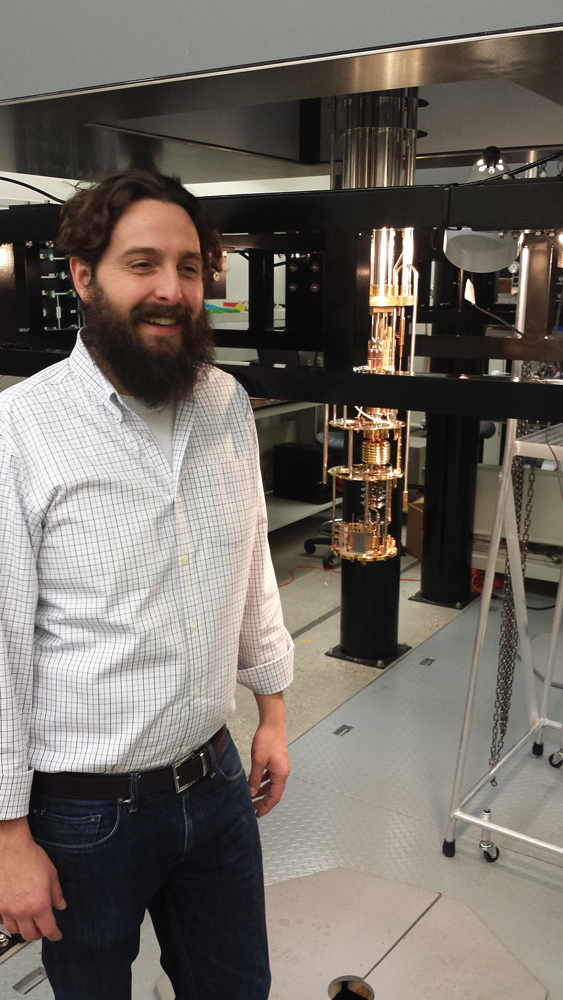Manouevring through John Davis’s basement lab in the University of Alberta’s Centennial Centre for Interdisciplinary Science is a daunting endeavour. The slightest vibration from even a single footstep on the other side of the room could ruin two years of work.
Multiple experiments set up in the lab are supported by shock-absorbing pneumatic systems that function on similar concept to that of a memory foam mattress. And, with some of the smaller parts costing upwards of $10,000, there’s no room for carelessness.
Davis, an assistant professor in the university’s Department of Physics, is currently working on many experiments, including super-refrigeration, fibre optics and gold bonding.
The forerunner in his nanomechanical work is the completion and commercialization of a breathalyzer-type device that could detect diseases like diabetes and lung cancer without the need for lengthy blood tests.
Davis is also experimenting with improving time-delayed fibre optic data transfer. Currently, if you want to add even a 100th of a second delay between data pulses, you’d need to send the transmission through thousands of kilometres and kilometres of fibre optics.
But his main work is investigating the properties of matter at incredibly low temperatures. He and his team have designed and built super-refrigerators to lower the temperature of matter to an incredible level – 0.006 Kelvin, the coldest temperature ever recorded in Alberta. They’re currently working on an addition to the largest device that Davis hopes will let them reach a temperature 10 or 20 times colder than that.
To put that into perspective, room temperature (20C) is 293 K, and 0 K (-273C) is considered absolute zero. No one has ever reached absolute zero, because the best refrigeration techniques we have function exponentially, growing ever closer, but never actually reaching the target.
The purpose of Davis’s research is to discover new physical phenomena, something that happens as the temperature drops. The implications for such discoveries are unknown as of yet; it all depends on what, if anything, is discovered.
